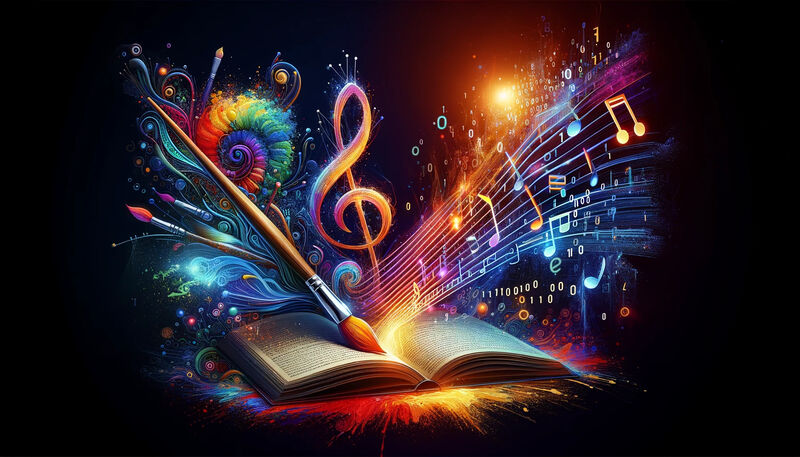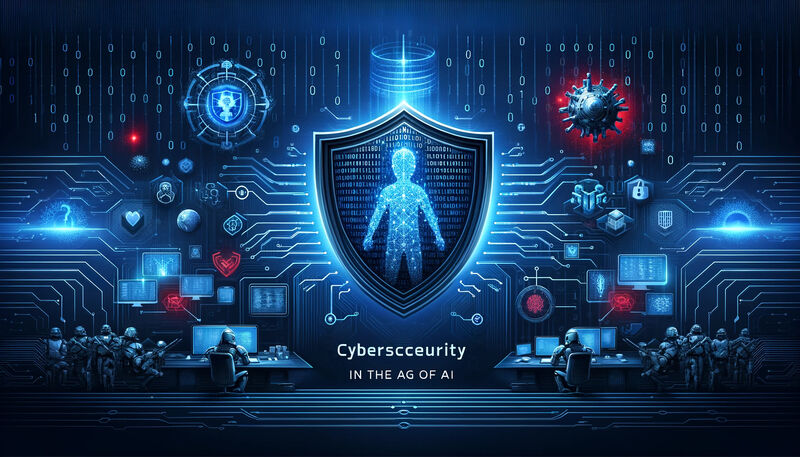AI and Creativity: Exploring the New Frontiers of Art, Music, and Literature

The advent of Artificial Intelligence (AI) has not only transformed industries and scientific research but has also made significant inroads into the realms of art, music, and literature. Once considered exclusive domains of human creativity, these fields are now witnessing the emergence of AI as a collaborator, creator, and curator. This article delves into the fascinating intersection of AI and creativity, exploring how technology is pushing the boundaries of artistic expression and redefining what it means to create.
AI in Visual Arts
AI algorithms have demonstrated their ability to generate art that resonates with the complexity and nuance of human-made works. Using techniques such as Generative Adversarial Networks (GANs), AI systems can produce original artworks that are indistinguishable from those created by human artists. These AI-generated pieces challenge our traditional notions of creativity and authorship, prompting a reevaluation of the artistic process itself.
Beyond creation, AI is also revolutionizing the way we interact with and interpret art. AI-driven analysis tools can uncover patterns, styles, and influences in artworks, offering new insights into art history and criticism.
AI in Music
In the music industry, AI is composing scores, producing tracks, and even performing music that captures the complexity and emotional depth of compositions traditionally created by humans. AI music generators can create compositions in various genres, offering artists new tools for inspiration and experimentation.
Moreover, AI is enhancing the listening experience, with recommendation algorithms personalizing music streaming services to individual tastes. This personalization extends to interactive music applications, where listeners can alter compositions in real-time, blurring the lines between creator and audience.
AI in Literature
AI's impact on literature is equally profound, with algorithms capable of writing poetry, short stories, and even novels. These AI-authored texts challenge our understanding of storytelling and authorship, raising questions about originality and creativity.
Beyond generating text, AI is being used to analyze literary works, identifying themes, styles, and emotional tones. This analytical capability offers new perspectives on literature, enhancing literary criticism and interpretation.
Ethical Considerations and Challenges
As AI continues to explore the frontiers of creativity, ethical considerations and challenges arise. Issues of copyright and intellectual property become complex when AI generates art, music, or literature. The question of whether AI-created works can possess the same emotional depth and authenticity as those created by humans also remains a topic of debate.
The Future of AI and Creativity
As technology advances, the collaboration between AI and human creativity is likely to deepen, leading to new forms of artistic expression and creative processes. This partnership holds the promise of democratizing creativity, making artistic tools and platforms accessible to a broader audience and fostering a more inclusive creative community.
In conclusion, the integration of AI into the arts is not a displacement of human creativity but an expansion of its possibilities. By exploring the new frontiers of art, music, and literature, AI invites us to reimagine the boundaries of creativity and to consider the future of cultural expression in an increasingly digital world. As we navigate this evolving landscape, the synergy between human ingenuity and artificial intelligence will undoubtedly lead to unprecedented forms of art and storytelling, enriching our cultural heritage and expanding our collective imagination.

